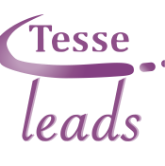 Bridging those really sticky situations
Bridging those really sticky situations
Listening can be more tiring than talking. Yet it is listening and listening well that builds stronger and healthier relationships.
Even positive and constructive relationships can be riddled by tension and conflict. Sometimes these can be interpersonal, but they may be indicative of systemic, structural or cultural difficulties.
Nine Steps you can take to tackle conflict
Identify the dynamics of problems before engaging in taking action. This involves uncovering the underlying problems. These are often different from how the situation may present itself or the symptoms you see. What are the root causes of the difficulty? Where do the pressure points lie ? Why are people arguing?
Focus on the past in a healthy way. How can the past change your perception of current events? What changes as a result of understanding the context of what went before?
Journey towards restoration and healing . As tempting as it may be, don’t put a bandage on an infected wound. It will only worsen it. Deal with the wound. What steps can you and others take to repair the broken places? Are people involved willing and committed to work through the wounded past? I have found that there can be no healing without a measure of acknowledgement and forgiveness.
Find ways of having those difficult conversations. How can everyone feel heard and even better understood? Practical tools like appreciative enquiry or compassionate communication can get to the root of needs that are not being met and surface what individuals involved would like to occur instead.
Offer a respectful response. Even if you think you are in the right, it pays to plead your case in a respectful way and respond to situations that effect you respectfully. Go for win-win solutions.
Increase your effectiveness as an influencer and change maker. Employ appropriate approaches to resolving messy and sticky solutions. You will become the go to leader for influence and impact. The prescription may be a good dose of common sense, calmness, empathy , compassion, insight and wisdom.
Get the right support. Involve the right people and as much as possible arm yourself with the resources you need to be effective and efficient in your quest.
Take time out where needed . A cooling off period can put things in perspective.
Lastly never engage in an argument when you are hungry or tired. It rarely goes well. Eat first and rest. Get to a calmer place for yourself that offers a balanced view. Operating from that space and place can be more effective and lead to a more amicable outcome.
Useful resource Robert Waldinger: What makes a good life? Lessons from the longest study in happiness (TED talk)
Illuminating saying
“You cannot turn the wind, so turn your sail”. Swahili Proberb
